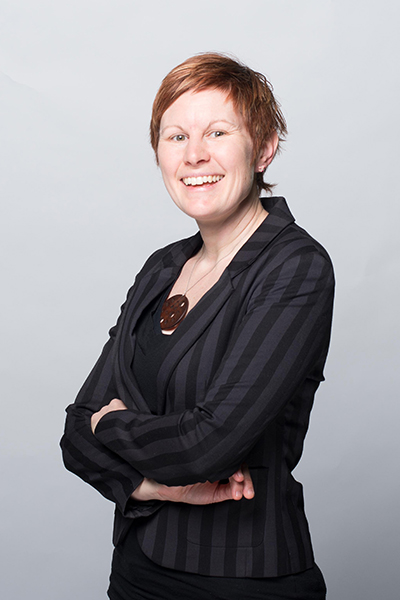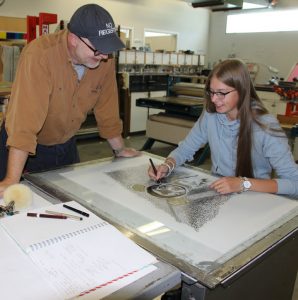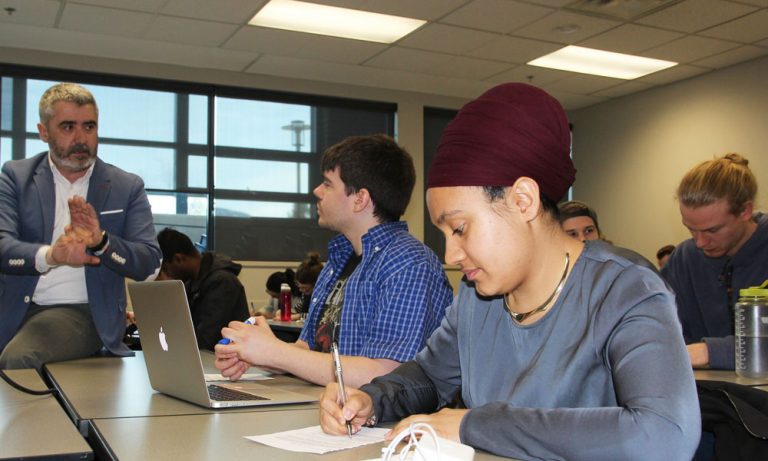Dania Tomlinson completed her MFA in 2014 at UBC Okanagan and her book, Our Animal Hearts, was recently published by Penguin Random House Canada. We met with Dania to discuss her book and to get some insight on her writing process.
Tell us about your novel
DT: Our Animal Hearts is set in the early 1900s in a fictional orcharding community on the shore of Okanagan Lake. Essentially it’s about a girl growing up in the shadow of a mother who both mystifies and frightens her. As she attempts to understand her place in the world, the faery tales, myths, and cultural stories she inherits, and those she learns from others, begin to manifest, intersect, and blend seamlessly with one another. And figures from these stories materialize in her immediate surroundings, particularly in the forest and in the lake. Although historical fiction, this book is also in the realm of magic realism, meaning that it incorporates magical or mythic elements into an otherwise realistic narrative.
What was your process of researching for the book?
DT: What centred my research was representing the Okanagan in the early 1900s through the landscape, the characters, and the events. But as I delved into the research, the fictional town soon became a microcosm of British Columbian, or even Canadian, history. The short 38 years this book spans cover some really dark events: the theft of indigenous land, the ostracisation of non-white immigrant communities, the internment of Ukrainians during WWI and Japanese during WWII, the Spanish flu epidemic, and the beginning of the horrid residential school system. It was important to give these historic events a local context, and for them to have real consequence in the narrative.
What was your process in writing the book? How long did it take you? Was this your thesis project, and if so, how did it change since you graduated?
DT: It took nearly 10 years for me to complete this novel. Honestly, I am still rewriting it in my head. In many ways I grew up writing this book. I became a university student, an adult, a wife, a mother, an instructor, all while writing this book. But the first time I wrote this story I was in my 2nd year of university and I was in Anne Fleming’s fiction class at UBCO. I wrote a short story about two elderly women in a nursing home and decided I wanted to start at the beginning of their lives and explore how these two women came to be. What moments shaped them? What decisions had lasting impacts? From there the story became two braided narrative strands, one that took place in Chile in the 1940s and the other that took place in the Okanagan in the early 1900s. The childhoods of these women, and the climatic moment when their lives collided, was the gist of my thesis. Since then the story has changed dramatically. The Chilean narrative was stripped which meant the Okanagan narrative had to stand on its own.
Tell us what it was like to work with an editor?
DT: Our Animal Hearts went through some very tough revisions. I edited it with both with my agent and then later with my editor. But I enjoy the editing process. It’s when you get to make your writing shine. My MFA prepared me for working with editors. It taught me to distance myself from the work enough so I could be craft-focused and less sentimental. It’s important to be open during the editing phase, but also firm on what you value in the story. This can be a difficult balance. In the end, having experts invest themselves in your work is a thrilling experience.
What have you been doing to promote the book?
DT: Along with a book tour to Vancouver and Victoria, my publicist arranged for me to do several interviews and questionnaires for press such as the CBC Magic 8 Q&A and a feature in the Georgia Straight. I’ve also been on local radio and a podcast called Get Lit. Every new phrase is brand new to me, and the publicity part has been quite an adventure. I never know what to expect. Sometimes I know about things well in advance, other times I have two hours to make it down to the local CBC radio station. Although a little stressful, it has all been very exciting.
You have an event coming up at the OK Regional Library on July 19th with an MFA alumni from UBC Vancouver, Shilo Jones. Tell us how this came about, how did you meet Shilo?
DT: Shilo and I have never met, which is weird since we both live in Kelowna and the writing community here (although robust!) is quite intimate. Adding to that, it seems our writing careers run on parallels as our debuts came out within weeks of each other, and we share a literary agency, a publisher, and we both completed our MFAs at UBC campuses. The similarities are odd. I look forward to reading with him on Thursday, and finally getting to meet.
Dania Tomlinson and Shilo Jones will be giving a public reading from their new books on July 19 at the Okangan Regional Library, downtown branch.
Find out more about Dania Tomlinson and her time at UBC Okanagan as an MFA student.





















